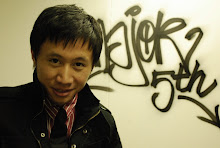The Holder of the World is a book that tells the story of Hannah Easton, born in the American colonies around 1670, who is a woman that thirsts for adventure and desires to expand her possibilities. Hannah was raised in a unique domestic environment compared to other children of Puritan society. Her mother, Rebecca, had a secret love affair with a Nipmuc (King Phillip), which is how she acquired knowledge of wild medecines. Hannah, too, learned from her mother and developed a unique personality. A series of other horrid events shaped Hannah's character into someone who is constantly moving, in search for new and exciting things, and a practitioner of unorthodox healing methods.
Changing Gears
Now, let me introduce the concept of Representation and Agency in the context of my blog. Agency can be defined as the state of being in action of or exerting one's power. A person who is wealthy most likely has more agency than others, as they may not be as limited as others who are not as priveleged.
Representation is the placing of something in the absence of its presence. For example, the senator of a state represents that state in the U.S. Senate because the entire state cannot be there. Representation also has many other definitions and functions: a novel's function as a representation of reality, an iconographic function (i.e Nirvana represents Grunge Rock), the representation of yourself to yourself, the representation of yourself in public.
Another very important function of representation is its function in media. The media represents many figures and groups in the media and has a strong influence in it. The representations of groups in the media puts people into roles. For example, 'a man should act the way a man is represented in the media.' A woman 'should act the way a woman is portrayed in the media.' Therefore, the way things are represented limits agency.
Back to The Holder of the World
Hannah, in the novel, moves from Salem to London, and form London to India, and from India to...well, I haven't got that far yet. These relocations all involve Hannah's desire from something new, adventurous, partially influenced by her unusual upbringing (as I mentioned before). She wishes to push herself to new possibilities. It is the need to find out who she is and be herself. Her desire, perhaps, comes from her desire to exert her agency beyond the limitations that her surroundings impose on her.
In Salem, when Hannah was living with the Fitches, Hannah's agency was limited by the representations of what a lady should be, a Puritan lady to be exact. If she was going to use some wild herbs from the forest for medecine, it was tabooed or alien. It was then that she married Gabriel Legge, which was an escape from Salem and its limitations.
In London, Hannah's agency was limited by her role as a wife, or rather, the representations of what a wife should be. And when Hannah heard the news of Gabriel's "death," she had more agency.
In India, the English women were to act in contrast to slave girls (Indian women). The identity of Enlish women as proper, upright, educated, elegant, is constructed by a public a space - or rather, the representation of an English women in the public space. The representation of what an English women should be limited Hannah's agency. She did not engage so much with Indians, at least for the middle section of the novel, though she desired to discover and learn new things. She did not venture to new places in India, since it was her role to stay in the house and wait for her husband.
I think the constant tension between representation and agency puts Hannah in these different spaces. Hannah doesn't seem to be satisfied with roles constructed by public representations.
Subscribe to:
Post Comments (Atom)

I am glad you brought this up! It will definately help in the final, especially with agency. If you talk abou this in the final maybe elaborate a little more on the representaion part and the tension inbetween the two.
ReplyDeleteYou are right with your last thought--that "Hannah doesn't seem satisfied with the roles contructed by public representations." I think that is what makes her character so intriguing. When she is finally unbound from social restrictions, she feels free and happy--the part where she is putting on the sari sticks out to me. Her orignal perception of bibis changes and she enjoys her role as an exotic bibi over a proper wife. However, this may have been a misguided change, because the raja casts her off to have "her" child...
ReplyDeleteI agree with Catherine--wonderful that you brought this up! Juffer showed us how much agency and representation change based on space too. Understanding what kind of agency and representation people have in a given space is one of the most valuable things I have learned from this class (and my other English class this semester!). We so overlook spaces and use "we" statements to put everyone under one umbrella. But these statements become extremely problematic when you look at agency, representation, and space all in one--"we" statements just do not make sense when you look at the bigger picture. Thanks for helping me further clarify these ideas with your blog! :)
ReplyDelete